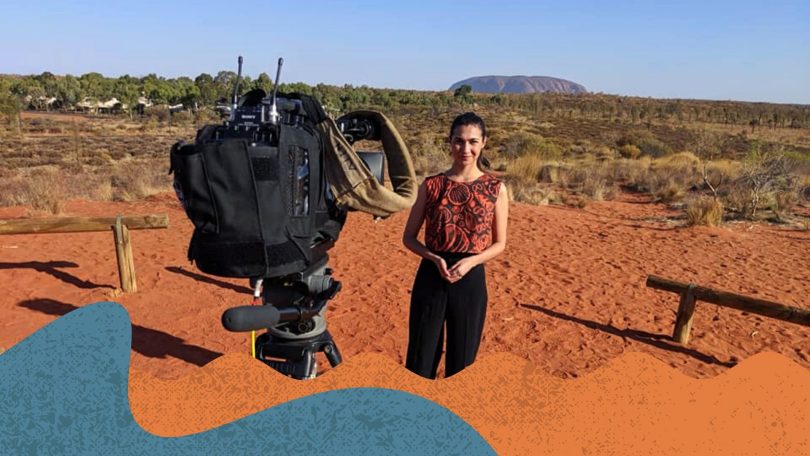Building trust serves truth, honours sources – and helps you get a better story.
Why stories get better when journalists aren’t objective by Sophie
Building trust serves truth, honours sources – and helps you get a better story. By Sophie Raynor for COMM1224 at RMIT.
At 8:00pm on a Saturday last November, NITV journalist Rachael Hocking got a phone call from the remote Central Desert community of Yuendemu.
A police officer had shot a 19-year-old Warlpiri man, the caller said.
Hocking, herself Warlpiri, from the Tanamai Desert north-west of Yuendemu in central Australia, verified the story, interviewed family members of the deceased, and published NITV’s breaking news story within hours of that first phone call.
A difficult assignment for any journalist, but particularly for a reporter with deep ties to a grief-stricken community.
We know journalism requires reporters like Hocking to be impartial; removed.
For author and broadcaster David Cox, impartiality involves “the attempt to regard different ideas, opinions, interests or individuals with detachment”.
But how do you detach when it’s your own community?
Reporting a tragedy at home
Six months on from the Yuendemu shooting, Rachael told the City Journal she doesn’t think a journalist can be completely objective.
“I don’t think journalists have a choice but to put part of themselves into the stories they cover,” she said.
“That’s something that’s been talked about for a long time: what is objectivity? Does it exist?”
Objectivity has long been considered a tenant of journalism – an idea developed long ago when many communities had just one newspaper.
With a single news source, impartiality was crucial (and important in not turning advertisers away). And the idea prevails in mainstream journalism to this day.
The Australian national broadcaster, the ABC has described impartiality as one of the “most fundamental elements” of its content-making.
And the US network, NPR has praised its reporters’ “experiences and perspectives” as “assets” to its journalism – before encouraging reporters to “transcend” their biases to honour professional impartiality.
But now, some reporters are now seeking transparency, not impartiality, as a basis for building trust with audiences.
Storytellers for a digital age
ABC manager Kellie Riordan described it as a “new style” of journalism.
“These are storytellers for a digital age that come less from the tradition of straight, impartial news-gathering and instead embrace a new style of journalism which favours transparency, strong analysis, opinion, a subjective standpoint,” she wrote in a Reuters Institute Fellowship Research Paper.
As Rachael said, trust was central to breaking the news of the Yuendemu shooting.
“The fact that I received a phone call from someone who I hadn’t necessarily interviewed before shows the difference it makes when you have a reporter who is trusted by that community,” she said.
“My proximity to that story meant that our article included on-the-ground observations about what was going on, and it meant that we were getting the community’s perspective, not just a police media release.”
Rachael said she felt a responsibility to platform members of the Yuendemu community.
“I felt an incredible responsibility to make sure I reported on it fairly,” she said. “We’re talking about a very remote community, [one] people in this country probably have never heard of; people who feel a grave injustice has occurred.”
Reporting when ‘neutrality is impossible’
Researchers and commentators are increasingly challenging the idea that a journalist can be truly impartial.
New York University journalism professor Jay Rosen described the attempt at impartiality as pulling a camera back to widen the tableau in frame – but said no matter how far back a camera pulls, it still occupies a position.
And Tel Aviv University researcher Sandrine Boudana wrote: “As neutrality is impossible and truth does not lie in the middle, accuracy is better served by fairness than by a delusive position of impartiality.”
If impartiality is a delusion, a journalist who is upfront about their proximity to a story can be more trustworthy than one professing their lack of bias.
Accuracy is served by truthfulness and transparency – and, as Jay Rosen wrote, so too is the story.
“If in doing the serious work of journalism—digging, reporting, verification mastering a beat—you develop a view, expressing that view does not diminish your authority. It may even add to it.”
Featured photo: Rachael Hocking (supplied).







